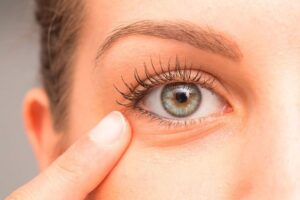The doctor. Nadir Salaues indicates that the number of people who choose plastic surgery has increased significantly, this being an advanced surgical medical practice especially by the new technology associated with this procedure which offers many options.
Unfortunately because of this boom it has also increased the number of unqualified pseudoprofesionales professionals or offer their services at lower cost than trained professionals who are accredited and supported by institutions such as schools and medical associations as evidenced by the experience and memberships Dr. Nadir Salaues.
The medical specialty of plastic surgery encompasses both cosmetic and reconstructive surgery. However most people associate the term with improved appearance (taking into account only the cosmetic side).
The most common surgical procedures:
- Mammoplasty breast augmentation with breast implants.
- liposuction, y liposuction lipoabdominoplasty.
- Rinoplastia
- Blefaroplastia.
The most common non-invasive procedures have been chemical peels to reduce imperfections in the face and facial laser procedure.
Firstly, before making any surgical procedure, It is always recommended to check that the plastic surgeon is registered in the medical school and society of plastic surgery.
Understand the options as a patient and determine the cost / benefit of each procedure. Well some procedures are not necessary and should be evaluated fitness, mental and mood of each patient.
If you decide to get a surgical procedure, Make sure the doctor you take the time to explain how will the procedure until you feel
satisfied and satisfied with the information received.
The amount of time the doctor takes to explain plastic surgery is an indicative, but not the only, the doctor takes his time covering all angles during surgery as well as after this.
Especially, Make sure the doctor all safety case. If you do not feel comfortable with the doctor or do not have references to the doctor or they are not good, look for an experienced surgeon and recognized.
Remember that you will never regret a surgery that has not been done, but if you regret that was done and should not have hacérsela.
GENERAL RECOMMENDATIONS
Preoperative:
- Inform the doctor about any illness or allergy suffers, and drugs before and now.
- Report any changes in your health status prior to surgery (flu, allergy, infections, menstrual period).
- Avoid taking aspirin, oral contraceptives or any blood-thinning medication such as vitamin E or ginseng or other medications without consulting your doctor.
- Refrain from smoking before the procedure at least 15 days 1 my.
- Not drink alcohol.
- Healthy eating and abundant drinking fluids the days before your surgery.
- Prepare your family by explaining the procedure and the care and support that requires them.
- Contact a person to accompany you on subsequent days to surgery.
- Coordinate and delegate activities that will not be able to attend: take and bring children, prepare food, issues of your work, pending payments, etc.
- If you want to change hair color, or visit a beauty salon, you must do so between 48 and 72 hours before the day of surgery, as is contraindicated subjected to heat and certain positions should be avoided after surgery depending on the procedure performed.
- Remove nail polish.
- Ask your surgeon when you can return to the classroom after surgery.
- 3 a 5 days before surgery choose to use antibacterial soaps for general cleaning of the body, and emphasize the area to be operated, This will help prevent infection.
- Preferably the depilatory area of surgery.
- The day before surgery, eat light foods, Do not drink alcoholic beverages.
- The night before the surgery take a bath using 2 times antibacterial soap, wash your hair and pick, not spread any cream in the area to operate
- Do not consume anything by oral route, or water 8 hours before the surgery (NPO).
DAY OF SURGERY:
- Do not wear contact lenses.
- Do not bring valuables (jewelry, Watches, dentures, etc).
- Do not wear makeup or nail polish, or corporal or facial creams.
- Choose comfortable clothes so that it can be fitted and removed easily.
- If surgery is ambulatory remember it is to dress recently operated. Wear clothes that can be buttoned in front and pants elastic waist, or a wide gown.
- If you take any medical treatment daily talk with the doctor about this.
- Depending on the surgery, It will be presented to the clinic in complete fasting or light fast 6 a 8 horas.
- Follow the instructions indicate specialist.
- Bring the results of laboratory tests, radiography and cardiovascular assessment requested by your surgeon and other assessments and
if I had exams. - Having a companion or family member to collaborate before and after surgery.
- Bring personal identification papers or passport.
- Report to the clinic when prescribed by your doctor, it's recommended 1 a 2 hours before the surgery.
- You will be given the medical record which is filled (are the relevant questions to their medical records),You must also read and sign the sheet
informed consent for surgery. - Placed the robe or garment that provides hospital and removed the underwear, and collect her hair.
- Receive a visit and consult your doctor and anesthesiologist before moving to the Operations Room.
ANESTHESIA:
As assessed by the doctor and the type of procedure can be: Local, Sedation, Regional spinal or epidural block (Trunk anesthesia down) or general.
SURGERY:
Varies according to the surgical technique to be performed in each patient. All technical and specific information on the procedure aspects will be explained and clarified through consultation with your surgeon.
POSTOPERATIVE:
- The day of surgery is important that a relative or friend accompany you, especially during the trip home, as it is recommended not to do it on your own.
- You can restart your power, according to medical indications, three hours after surgery if it is applied only local anesthesia. If you used
General anesthesia is recommended to wait six to eight hours to eat, starting with liquid. - When in the recovery stage and due to inactivity, you may have problems with constipation, then contact your doctor to recommend improvements in your diet.
- His attitude and care in postoperative stage is crucial for recovery.
- Remember to have a period of depression is normal postoperative.
- Limit your visits for the next two weeks after surgery.
- Take a daily shower, soap and water should fall into the wounds and do not remove the micropore of wounds, This will be done in consultation and cures.
- No fume, or drink alcohol, as it slows healing.
- Do not use contact lenses or makeup, if facial surgery.
- Avoid exercise and sudden movements until you doctor tells.
- Avoid direct sunlight as it can affect the color of scars and wear sunscreen.
- Do not use pools and not exposed to seawater until the scar is completely closed.
- If fever, excessive secretion from wounds, severe pain, hot, redness or severe inflammation, talk with your surgeon.
- Nose surgery nasal splint was changed to acuaplast 7 days.
- Facial Rejuvenation Surgery, the dressing is changed on the third day.
- In Lipoescultura abdominoplasty and belt should be used for a period of 6 a 8 weeks to 3 months for best results.
- As the swelling has gone down postoperative treatment will begin with ultrasound and lymphatic drainage with the physiotherapist.
- Surgery Breast Augmentation a special brassier be used by 4 a 6 weeks to 3 months.
- postsurgical therapies such as lymphatic drainage will begin from the first week.
- If your expectations are met, probably after his first cosmetic surgery, You want to improve another area of your body.
- Prepare your mind and spirit, do not rush; be recovered.
MAJOR GENERAL RECOMMENDATIONS that the patient must follow:
- The patient must be fully informed and aware about their surgical procedure during the preoperative process. The doctor. Salaues
You will be pleased to answer all your questions and all your surgical medical equipment will be available. - Patients should arrange for post operative a warm and peaceful atmosphere that initially offered at the Medical Center where surgery has been performed and then the place where you live or where you stay if patients from abroad.
- You should follow the doctor's prescription given by the specialist and avoid any other medications without talking to your surgeon.
- If you use medicines regularly should inform your surgeon.
- Communicate directly with the surgeon or his team, in case of any discomfort or change in the normal course of the recovery process.
- Walk with assistance from the early days and avoid prolonged periods of quiescence.
- Especially the first day, ingesting liquid or soft diet and then, continue with a balanced diet with plenty of fluids.
- Avoid prolonged exposure to the sun.
- Use special supports such as belts and elastic supports according postsurgical recommendations Plastic Surgeon.
- Depending on the surgical procedure and patient conditions technology postsurgical therapies are available to shorten an ally and improve the recovery period.
- dutifully attend medical checks.
- Using some creams for healing and desinflamación in some cases an important part of the care to follow.
- Avoid strenuous exercise during the early days as this may affect recovery in some areas of the body that have been taken over.
- Overall sexual activity restarts the 3 a 6 weeks.
- To maintain long-term outcome should adopt a healthy lifestyle with the use of sunscreen, exercise, balanced diet and healthy habits which will be reflected in a better picture, in health and beauty.
The doctor. Nadir Salaues and his team are available at all times to provide all the support and encouragement you need.



